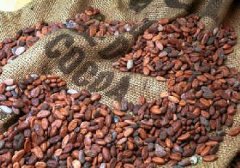The oldest coffee in the world-- mocha coffee

Mocha coffee is the world's most "ancient" coffee, it exudes the taste is consistent with the ancient and mellow, the origin of mocha coffee, is synonymous with coffee, its unique aroma and sour, deeply attracted many coffee lovers.
Some people say that in coffee, blue mountain can be king, mocha can be called after. Mocha coffee has the most unique, richest and most fascinating complex smells in the world: red wine, wild flavor, dried fruit flavor, blueberry, grape, cinnamon, tobacco, sweet spice, log flavor, and even chocolate flavor... Mocha coffee tastes special, layered, like a woman's mood, slowly taste when you can experience the feelings from beginning to end will not repeat, constantly changing, the more you taste more like drinking a glass of red wine. Someone once said that if Mexican coffee can be compared to dry white wine, then Yemeni mocha is Bordeaux wine.
In his most authoritative book, Coffee in the World, historian Ukes wrote: "For many years, Yemeni mocha coffee was considered the best coffee available in the world. It had a unique taste, aroma, acidity and distinctive pungency." Yemeni mocha taste characteristics are more distinct, it is sour, and there is a clear chocolate taste, the stronger the coffee, the easier the taste of chocolate to taste out. Naturally, adding hot chocolate to coffee to make fancy mocha coffee will make people more aware of the unique taste of mocha.
Yemen was the first country in the world to produce coffee on a large scale as an agricultural crop. Yemeni coffee farmers still produce coffee the same way they did 500 years ago. Some coffee farmers still use animals (such as camels and donkeys) as a power source for stone grinding. Compared with countries in Central and South America that use advanced machinery to process coffee beans in large quantities, or even Kenya, where coffee has a short history, Yemen mocha is the only living monument in the coffee world! So the Yemeni mocha coffee you drink today is basically not much different from the Arabic coffee enjoyed by European aristocratic merchants hundreds of years ago in Europe's oldest cafe on San Marco Square in Venice, Italy.
Origin of Mocha
In 575 AD, the first coffee beans far away from home: Ethiopia took root in Yemen on the other side of the Red Sea, and since then the coffee industry in the world has been launched: "Mocha" coffee.
What exactly is "mocha"?
There are many answers to this question. Some people say mocha is a certain origin; some people have the impression that mocha is sweet chocolate coffee. In fact, authentic "mocha coffee" is only produced in the Republic of Yemen in the southwest of the Arabian Peninsula, growing on the steep mountain side at an altitude of 900 meters to 2400 meters, and is also the oldest coffee in the world. One might even wonder if the red coffee beans eaten by shepherd Garti's sheep were mocha coffee. Depending on where and when the story takes place, this is likely.
Coffee was produced in Yemen in an ancient way more than 500 years ago. At the beginning of the 17th century, the first batch of Yemeni coffee sold to Europe was exported through the ancient small port: Mocha Port, which amazed Europeans. The delicious coffee shipped from Mocha Port was called "Mocha Coffee", which is the origin of the name "Mocha Coffee".
Neighboring Ethiopia across the Red Sea also exports coffee through Mocha Port, so Ethiopian sun-cured coffee is often called mocha (Mocha Harlar Ethiopia Harrar). Today, the old port of Mocha has long been abandoned due to siltation (today's place name AlMakha), and the port of Hodeida in the northwest has been changed. However, people have long been accustomed to the name of Mocha, because the name of Mocha has been heard in the sky.
Deep-roasted Yemeni coffee often exhibits a bitter, sweet flavor similar to chocolate, affecting today's fancy coffee flavored with chocolate sauce is also known as "mocha". So when you see the words mocha coffee, it may mean pure Yemeni coffee, or neighboring Ethiopian coffee, or simply fancy coffee flavored with chocolate sauce. In any case, only real Yemeni coffee qualifies as mocha coffee for picky coffee drinkers.
It is worth mentioning that, just like mocha has many meanings, mocha has various spellings in English: Moka, Moca, Mocca are common spellings. However, there are four other spellings on sacks and documents for Yemeni coffee: Mokha, Makha, Morkha, Mukha, which, although spelled differently, all mean the same thing.
Yemeni mocha is the originator of the world coffee trade and has contributed to the promotion of delicious coffee to the world. In the 17th century, Yemen mocha, known as Arabic coffee (Arabia)(which is also the origin of the name of the later "Arabica species"), crossed the ocean to Italy and other European Catholic countries. For more than 150 years, Yemen coffee has been the only coffee source sold to Europe.
In ancient times, in conservative Catholic countries, things that were extraordinarily good were often considered evil, and coffee was once burdened with inexplicable evil. It was not until the Pope of the Vatican, who also loved coffee, declared coffee a Catholic drink and blessed coffee drinkers that coffee began to spread widely in Europe. Although Ethiopia was the first country in the world to discover coffee, it was Yemen that allowed coffee to flourish. Today, there are still traces of coffee on Yemen's national emblem. Yemen's national emblem consists of an eagle and a flag. The eagle symbolizes strength, and the shield on the eagle's chest is painted with the famous historical sites of Malibu Dam and coffee trees. The words "Republic of Yemen" were written in Arabic on the ribbon.
Yemeni coffee prices on the international market have not been low, mainly because Yemeni coffee is very popular in countries and regions where drinking "Turkish" coffee is popular. In Saudi Arabia, Yemeni mocha is so beloved that people there would rather pay a premium for mocha coffee of lower quality. This particular fondness for mocha keeps mocha coffee prices high on the world coffee market.
Today, mocha coffee has long been familiar to people, but how many people know that the prosperous port where ships came and went before the 18th century and today's "mocha" will have such origins.
Important Notice :
前街咖啡 FrontStreet Coffee has moved to new addredd:
FrontStreet Coffee Address: 315,Donghua East Road,GuangZhou
Tel:020 38364473
- Prev

Magic drink, boutique coffee, espresso
About 700 years ago, coffee, known as a magic drink, was brought to other countries in Europe and the United States with Italy's long water city culture: Canada, Switzerland, France, the United States and so on. To this day, it is popular all over the world. Italy is a beautiful country. When people visit Italy, they leave the deepest impression on two things: one is a man, and the other is coffee. In Italy, there is a name
- Next

Coffee is not only a fashion symbol.
Once upon a time, coffee, which was just a civilian drink in the western world, became an aristocratic drink when it came to China, perhaps a long way and expensive. Today, coffee has become a fashion symbol, so that some people, in order to show the quality of life of fashion petty bourgeoisie, are young and light guns, claiming that one day without coffee can not get back to the soul, is it such an exaggeration? In fact, the value of coffee itself is far more than
Related
- Beginners will see the "Coffee pull flower" guide!
- What is the difference between ice blog purified milk and ordinary milk coffee?
- Why is the Philippines the largest producer of crops in Liberia?
- For coffee extraction, should the fine powder be retained?
- How does extracted espresso fill pressed powder? How much strength does it take to press the powder?
- How to make jasmine cold extract coffee? Is the jasmine + latte good?
- Will this little toy really make the coffee taste better? How does Lily Drip affect coffee extraction?
- Will the action of slapping the filter cup also affect coffee extraction?
- What's the difference between powder-to-water ratio and powder-to-liquid ratio?
- What is the Ethiopian local species? What does it have to do with Heirloom native species?

